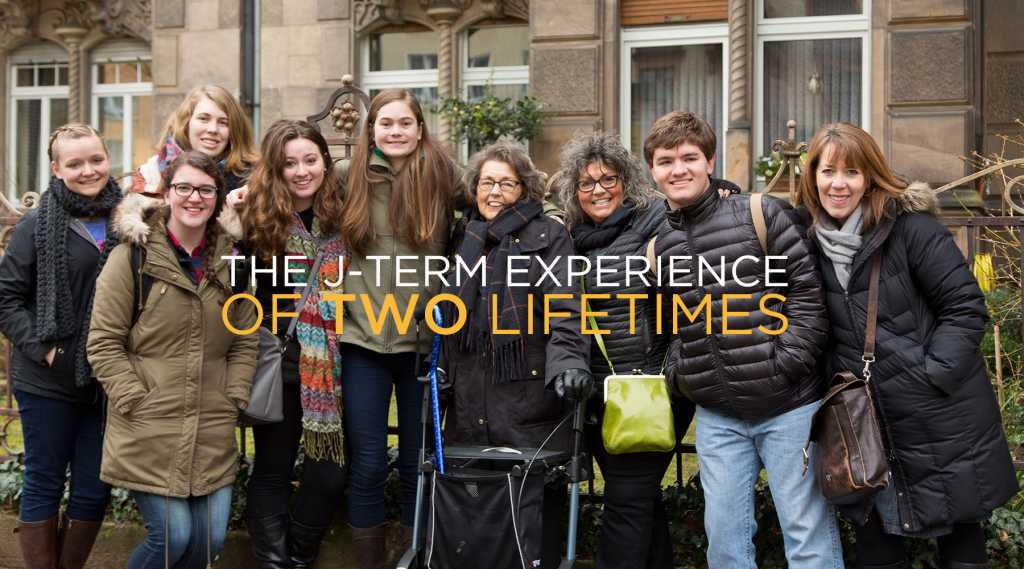Page 218 • (2,187 results in 0.181 seconds)
-
encourages a broad spectrum of ideas and access to learning for all—a hallmark of the Protestant Reformation. “You want a diverse array of perspectives and upbringings and opinions that challenge one another, that bring you closer to the truth,” Franco says. He stresses that this isn’t just about bringing many voices together; it’s making sure those voices talk to each other. “Diversity is the mix,” he says. “Inclusion means the mix works.” Julian FrancoAssistant Director of Admission for Equity and
-
commitment to caring for others, Hambrick said. PLU has always touted a mission of inclusion; the next step is making real progress toward modeling the type of inclusion it describes in its mission, Hambrick said. In other words, moving from a campus that welcomes diversity to a campus that creates an authentic sense of belonging for all students, regardless of race, religion, sexual orientation or gender identity. Tyler Dobies ’16 said it is difficult to face microaggressions every day. As a person of
-

neighbor, Helmut. +Enlarge Photo “Early that morning, coincidences started happening,” Mahr said. “Natalie Mayer, Kurt’s daughter, told me that she knew her dad was with us, making things happen. At his childhood home, we were just looking at the exterior, as well as at the original outside of his childhood neighbor’s home, Helmut. We were under the impression that no one knew Kurt who lived there presently. However, a lovely woman popped her head out of one of the windows and joined in on the
-

neighbor, Helmut. +Enlarge Photo “Early that morning, coincidences started happening,” Mahr said. “Natalie Mayer, Kurt’s daughter, told me that she knew her dad was with us, making things happen. At his childhood home, we were just looking at the exterior, as well as at the original outside of his childhood neighbor’s home, Helmut. We were under the impression that no one knew Kurt who lived there presently. However, a lovely woman popped her head out of one of the windows and joined in on the
-
campus to using post consumer recycled paper. Additionally, the club has been involved in many on-the-ground activities such as invasive species removals, and environmental activism events. Everyone is welcome! Type of Club or Organization: Diversity, Justice, and Sustainability (DJS)/Civic Engagement Meeting Times & Places (Subject to Change): When: Every Monday from 6pm-7pm Where: AUC 172 Club Email: grean@plu.eduImpactDescription: We are a student-managed, student-run design and advertising
-
Jewish Center Annual Alumni Journal (Winter 2017) Democratizing International Law-Making, in Olufemi Elias, and Charles Jalloh, eds., Shielding Humanity: Essays in International Law in Honor of Judge Abdul G. Koroma, (Utrecht, The Netherlands: Martinus Nijhoff Brill, 2014). Nigeria, in Dinah Shelton, ed., International Law And Domestic Legal Systems: Incorporation, Transformation And Persuasion (Oxford and New York: Oxford University Press, 2011) Human Rights & State Collapse in Africa, Utrecht
-
result was a reduced readmission rate for the patients she worked with. In other words, Dong’s project kept many of those patients out of the hospital. She praises the extensive support she received from PLU faculty members who helped her complete the scholarly research necessary to execute the transition program. “With this idea, you have to do lots of research,” she said. “(Faculty members) can give you guidance and help prevent you from making mistakes. They know how to make sure it’s on the right
-
the original intention of policies and their actual impacts. Zhiyuan Chen, PhD Appalachian State University Chinese Peasants and Peasants’ China Throughout the 5000 years of Chinese history, peasants or farmers have been the central part of the Chinese society; they have been playing the main role in the social development, and they have been the ones who constitute the central corpus of the decision makers of the Chinese destiny. The history of China has been written by the Chinese farmers
-
a job for myself where I could be myself,” Krause said. That took a lot of hard work and missed weekends in the beginning. For the first couple years of business, Krause and Lynch worked six days a week without vacations. Now, they have a full staff of employees and work three days a week. The rest of the time they dabble in creative projects, primarily making music with their band Fort Union, and managing food cart logistics. “We saw where it was going, so we knew we were on to something
-
has come full circle. She returned to Norway in 2010 for a previous job at a consulting firm. “At some point, I had to make the decision to come home to Norway again,” she said. Upon being hired for her current role, Fodstad said the chief executive officer told her that it appeared to be a homecoming of sorts. Fodstad agreed. “I’m hoping that I will stay there for a long time,” she said. “I feel like I’ve come home.”
Do you have any feedback for us? If so, feel free to use our Feedback Form.


